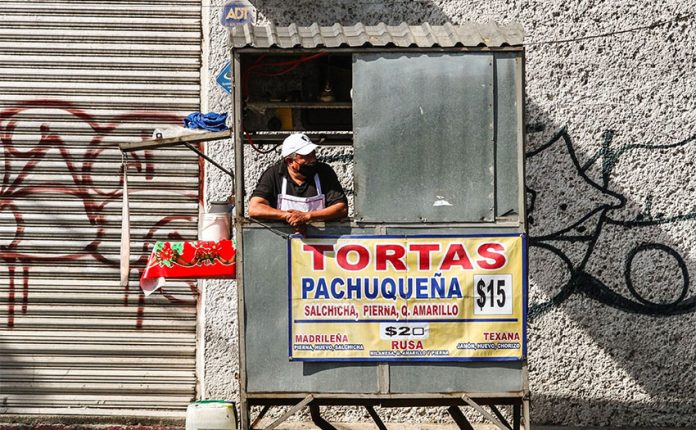Several well-known actors and entertainers have added their voices to calls for the government to provide a temporary basic income to people who have lost their jobs and livelihoods due to the coronavirus pandemic.
Actor Daniel Giménez Cacho, actress and soprano singer Susana Zabaleta and actress and comedian Mara Escalante are among the entertainers who appear in a video urging the government to pay an ingreso vital, or living income, to people struggling to survive.
Under the initiative, which is promoted by a group made up of more than 60 civil society groups called Citizens Action Against Poverty (ACFP) and supported by the Citizens Movement party, people who lost their jobs or income as a result of economic restrictions would be paid a minimum wage of about 3,700 pesos (US $167) per month for three months.
“We ask the government to adopt the decision now to create a basic emergency transfer and direct it without conditions to those who have been left without work,” Zabaleta says in the video.
Unemployed people who don’t already receive financial support from the government would be eligible.
Proponents of the ingreso vital say it will help to prevent millions of people from falling into poverty and allow more citizens to stay at home to slow the spread of the coronavirus.
According to the national statistics institute Inegi, more than 12.5 million Mexicans lost their jobs or saw their income dry up in the first half of the year.
Citizens Action Against Poverty last week presented the results of a survey that found that at least one in every three households across Mexico has seen their income drop by up to 50% as a result of the pandemic.
Just over 27% of those polled said that they and/or a member of their family had lost their jobs or source of income.
Although the economic situation improved for many in June when the economy began to reopen after a two-month-long national social distancing initiative, some 4.4 million people are still estimated to be jobless. As a result, millions of families continue to suffer from food insecurity.
The ACFP survey also found that more than 30% of respondents were suffering from severe depression and/or anxiety related to the pandemic even after restrictions began to be eased in the so-called “new normal” period. People of limited economic means suffered from the conditions at even higher rates, the poll found.
“People who don’t have sufficient income are forced to go out to work; that reduces unemployment but increases anxiety,” said Mauricio Merino, head of the organization Nosotrxs, one of the ACFP members.
He said the information gleaned from the survey shows that action is needed to reduce inequality. One of the ways to do that in the short term is to provide a basic living income to those who need it, he said.
Meanwhile, six months after the coronavirus was first detected here, Mexico continues to record thousands of new cases every day.
The Health Ministry reported 5,267 new cases on Wednesday, increasing Mexico’s accumulated tally to 573,888.
The last time fewer than 1,000 cases were reported on a single day was April 27 and the last time fewer than 2,000 were registered was May 13.
The Health Ministry also reported 626 additional Covid-19 fatalities on Wednesday, lifting the official death toll to 62,076.
Source: Síntesis (sp), La Silla Rota (sp), Expansión (sp), El Financiero (sp)
